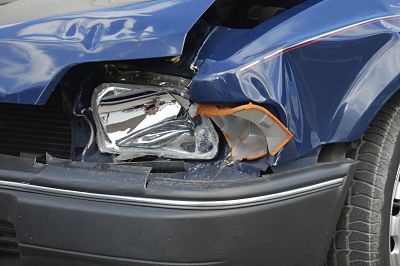Not all traffic violations are dealt with strictly by a ticket. For instance, if a driver accidentally strikes a structure or fixture “adjacent to a highway” and fails to report it, that driver can be charged with a Class B misdemeanor, which carries a potential jail sentence of up to 180 days in addition to a $2,000 fine.

Houston Court Rejects Defense Argument that Mandatory Reporting Law Does Not Cover “Private” Property
The Texas First District Court of Appeals here in Houston recently explained that the Class B misdemeanor offense applies to situations where the defendant struck private property, as opposed to a publicly owned structure or fixture.
The case, Mitchell v. State, arose from a single-car accident that took place in Wichita Falls. The defendant was driving his SUV and suddenly lost control of the vehicle. The SUV hit the curb, traveled into the yard of a private residence, and eventually struck the house, causing several thousand dollars worth of damage.
The defendant subsequently left the scene without stopping to notify local authorities of the accident. The owner of the damaged residence managed to track down the vehicle’s owner, the defendant’s mother. At that point, the defendant reported the accident.
Prosecutors charged the defendant with failure to report an accident involving property damage under Section 550.025 of the Texas Transportation Code. Although the base offense is a Class C misdemeanor, the charge becomes a Class B misdemeanor when, as here, the value of the damage to the property exceeds $200. At trial, the defense argued that Section 550.025 did not apply to this case, because the property damaged was a private residence.
The trial judge rejected this argument and the jury found the defendant guilty. On appeal, the defendant again argued Section 550.025 did not apply. But like the trial judge, the First District found the statute did apply.
The appeals court explained that Section 550.025 applies to any unreported accident “resulting only in damage to a structure adjacent to a highway.” Here, the private residence was “adjacent to a four-lane public road.” The defense, however, maintained the house did not qualify as a “structure.” The First District disagreed. A house falls within the dictionary definition of structure, the court observed. More to the point, Section 5502.025 does not “does not refer to ‘public structures’ or ‘governmental structures.’”
In addition, the statute makes it a crime not to report an accident to the “owner or person in charge of the property” that sustained damage. The use of the term “owner” clearly indicates Section 550.025 was meant to apply to a “variety of different persons and entities, both public and private, owning property falling within the statute’s scope.”
Speak with a Houston Traffic Violations Defense Lawyer Today
Many people understandably have the urge to flee an accident scene because they fear getting in trouble with the law. But as the case above illustrates, not reporting an accident can get you into even more trouble. If you have been charged with any type of traffic violation arising from a car accident and need advice from a qualified Houston criminal defense attorney, contact the Law Offices of Tad Nelson & Associates today. Call (281) 280-0100 .